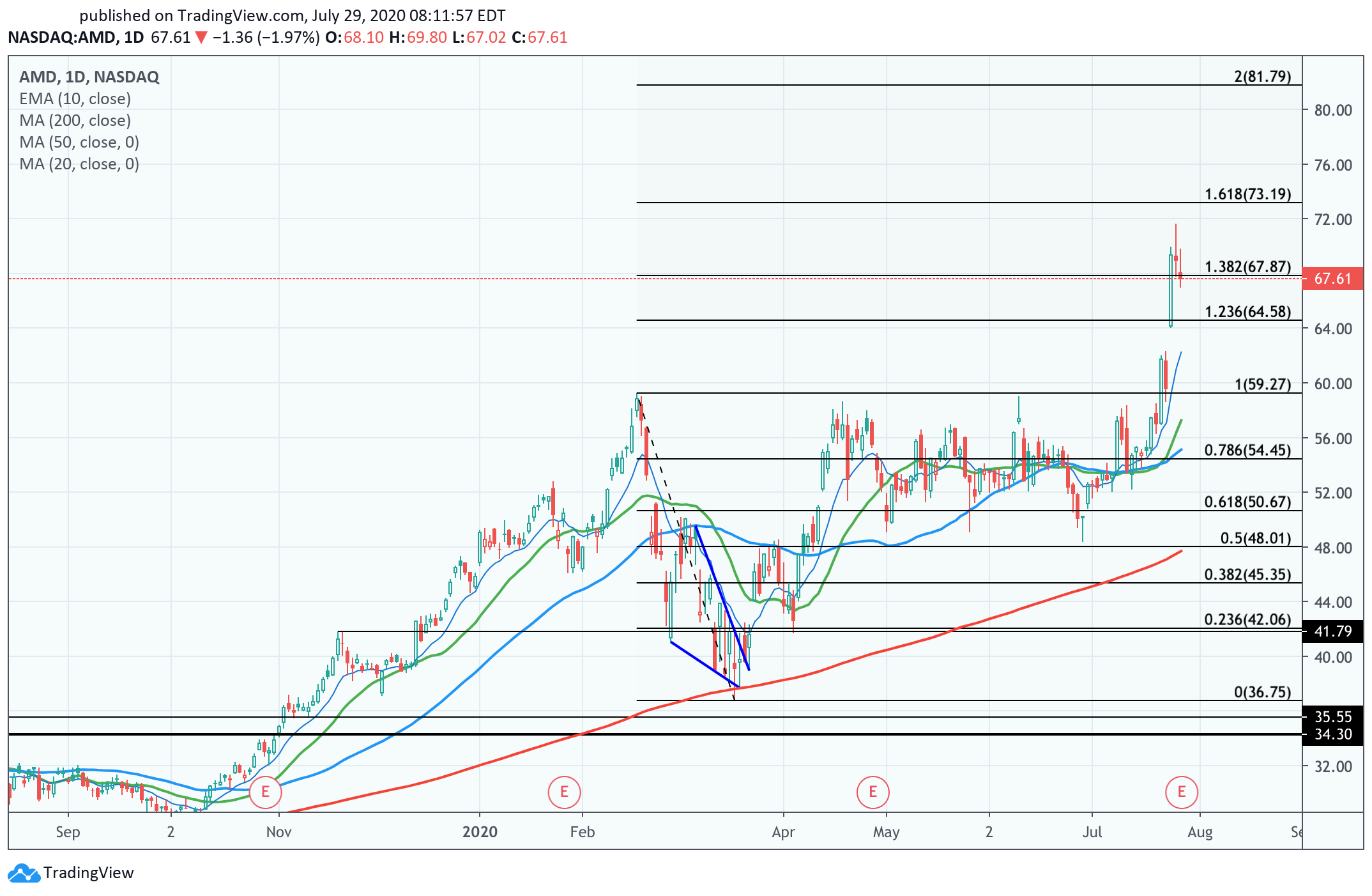Understanding the Mechanics of Stock Options Adjustments
AMD stock options, like many others, trade on an adjusted basis. This adjustment process introduces specific modifications to the options contracts when significant corporate events occur, such as stock splits, mergers, or dividend payouts. These adjustments ensure the contracts remain aligned with the underlying shares, preserving the value of the options and maintaining their position in the market.

Image: tradingyourownway.com
The Impact of Stock Splits on Option Contracts
Stock splits are events where a company increases the number of outstanding shares while reducing the price per share proportionately. In such cases, the options contracts representing those shares must be adjusted to reflect the change. For example, if a company undertakes a 2-for-1 stock split, the number of options contracts held by an investor doubles, while the strike price of each contract is halved. This adjustment ensures that the investor’s overall position remains the same, and the options maintain their previous value.
Mergers and Acquisitions and Their Effect on Options
Mergers and acquisitions involve the combination or consolidation of two or more companies, resulting in a new entity or an acquisition target. When a merger or acquisition affects a company whose stock options are being traded, adjustments to the options contracts may be necessary to account for the changes in the underlying shares’ ownership and structure. The specific adjustments depend on the terms of the transaction and the agreements between the companies involved.
Dividend Payments and the Adjustment Process
When a company declares a dividend, the stock price typically adjusts downwards by the amount of the dividend. To maintain the value of the options contracts, adjustments are made to the strike price. For instance, if a company announces a $0.50 per share dividend, the strike price of the options would be reduced by $0.50. This adjustment ensures that the intrinsic value of the options remains intact, allowing investors to maintain their desired position in the underlying shares.

Image: investorplace.com
Benefits of Adjusted Stock Options Trading
Trading stock options on an adjusted basis provides numerous advantages:
-
Preservation of Value: Adjustments maintain the value and position of the options contracts, which are tied to the underlying shares’ performance. This protects investors from potential losses due to corporate events.
-
Fair Market Representation: Adjusted options contracts accurately represent the intrinsic value of the underlying shares, ensuring fair market pricing and transparency in the options market.
-
Smooth Transaction Processing: Adjustments facilitate seamless trading activities during corporate events, preventing disruptions in the options market and allowing investors to manage their positions effectively.
Why Are Amd Stock Options Trading On An Adjusted Basis

Image: www.youtube.com
Conclusion
Adjusting stock options contracts during corporate events is an essential practice that preserves the value of the options and ensures their alignment with the underlying shares’ performance. By understanding the mechanics of these adjustments, investors can navigate the options market amidst corporate changes, maintaining the integrity of their positions and making informed decisions about their investments.






